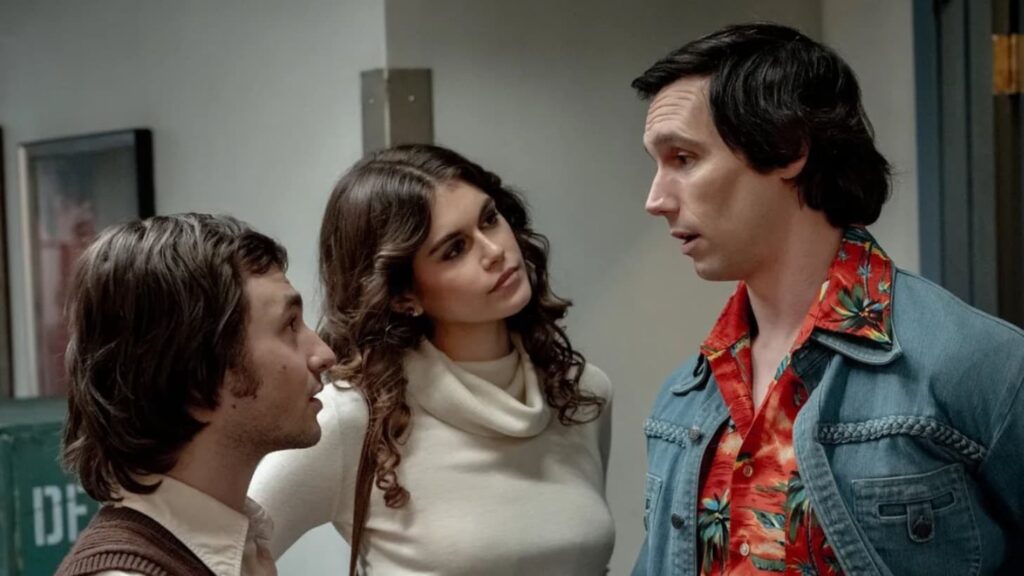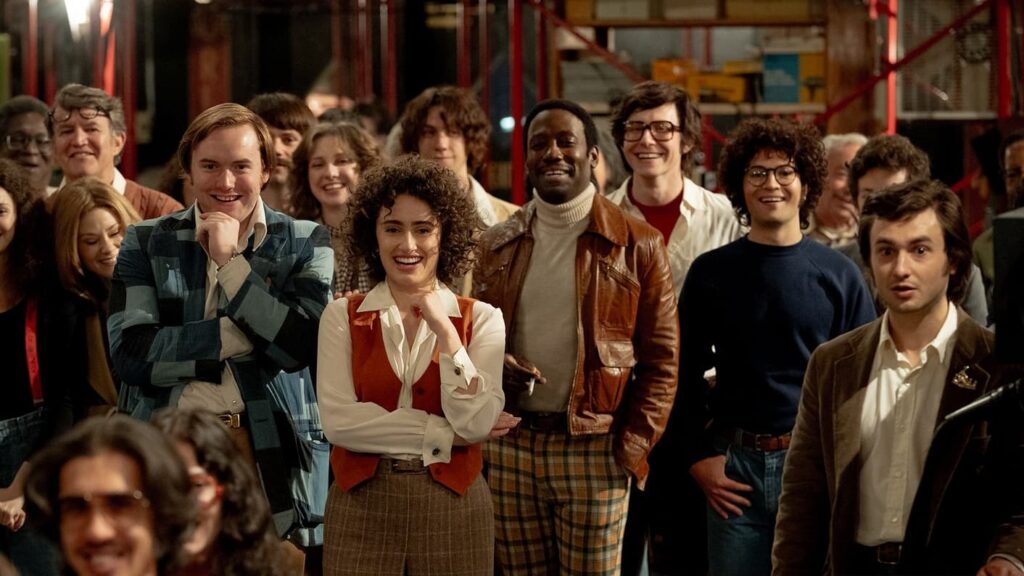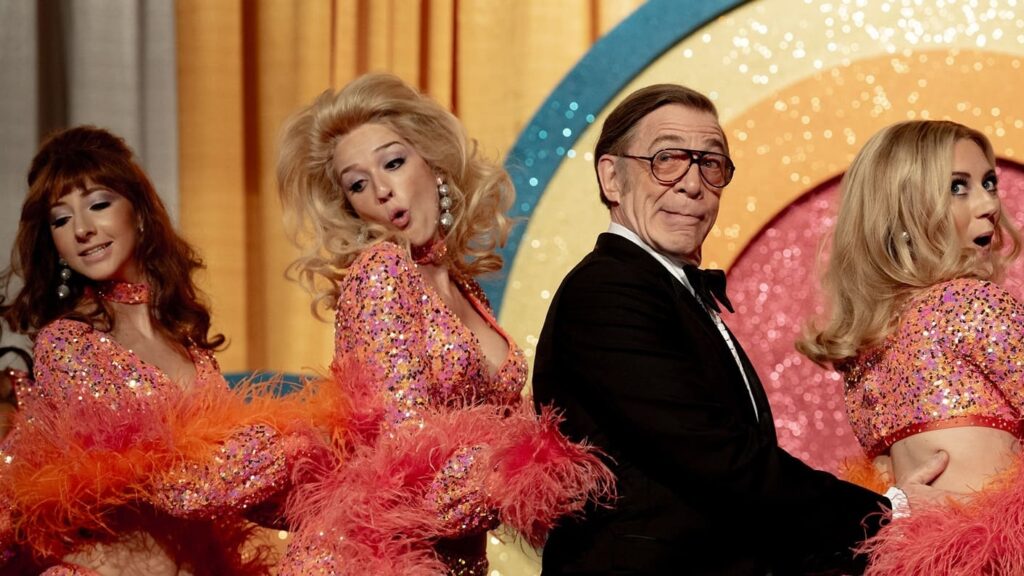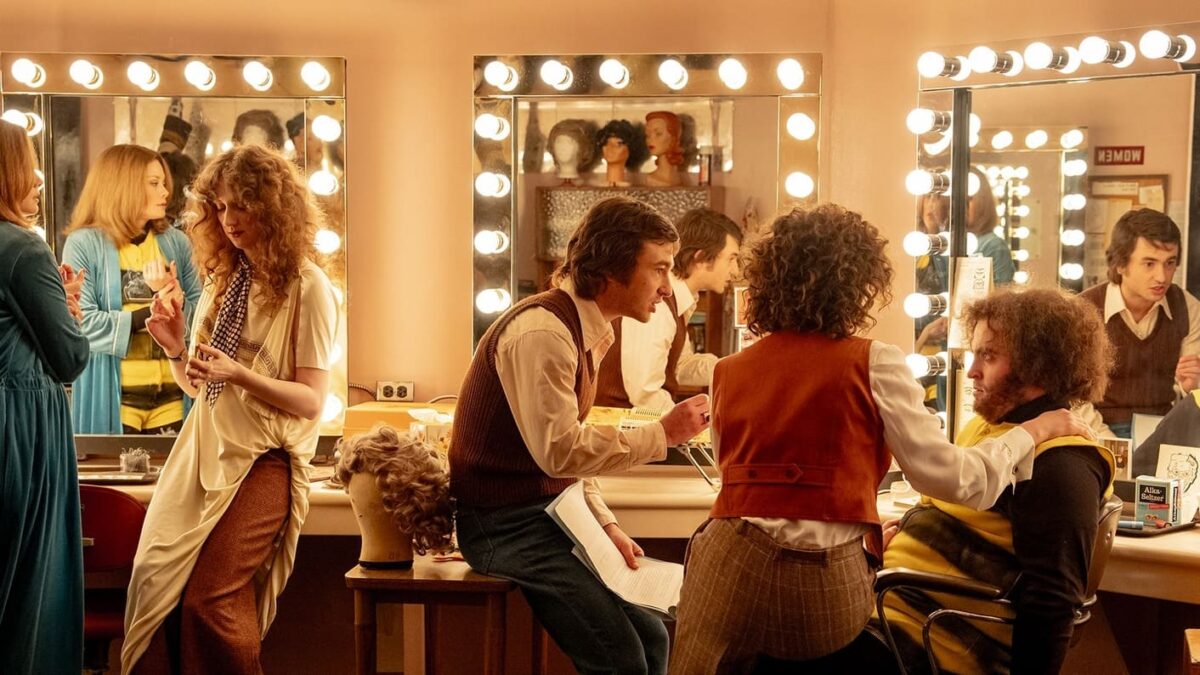Live from yadda yadda, you know the drill
I really wanted Saturday Night to work. I’m rooting for Jason Reitman, if only because the critical consensus decided he’s a snotty, mediocre nepo baby. But he’s directed at least two great dramedies, Juno and Up in the Air, and another very solid one, Thank You For Smoking. He’s brought out terrific performances from George Clooney and Eliot Page and Vera Farmiga and others. He gave Anna Kendrick and Diablo Cody serious spotlights when they were unknowns. He’s not, to my eyes, “a perpetual C-” like I read from one critic whom I quite like but will not name. I admittedly haven’t seen much in his 2010s and later filmography, a hole I’ll correct at some point, but, gosh darnit, I want movies to be good, and I pray they will be, especially if they’re in a genre and style I value.
For Saturday Night in particular, the sharks were out for blood. The very concept of a backstage drama about the first episode of SNL, cast with a sprawl of Gen Z up-and-comers cosplaying as celebrities from the seventies, is ripe for mockery. It feeds into the growing narrative that Jason Reitman’s chief occupation these days is as steward of the legacy of his father, Ghostbuster’s director Ivan, and Ivan’s buddies, many of whom are characters in Saturday Night. Film Twitter greeted every casting announcement with a virtual groan. Oddly, the skepticism seemed to come from both sides: First, those who hold early Saturday Night Live in prestigious esteem and presumed that Reitman and co. would completely miss what made the show bracing and culture-shaping in the first place; second, those who couldn’t give a rat’s ass about a barely-funny dinosaur of sketch comedy boomer humor that is the poster child of “comedy was better before woke” and expected nothing but navel-gazing and undue worship from Reitman Jr. (Both groups, I think, have their fears partially validated.)

So, like I said, I really wanted Saturday Night to work. But it doesn’t. At least, not quite. By the closing fifteen minutes, it’s turned a corner, but it’s not enough. The real problem is that the damn film has no structure. You’d think the limitation of the premise would be structure enough: 90 minutes left before the first episode of the show debuts, 90 minutes in the film. But this framework ends up more of a crutch than effective comic or dramatic scaffolding. Every scene in the opening hour is unmoored chaos: here’s one disgruntled famous person, here’s another, whoops this one took too many drugs, oh dear something broke on stage, etc. Just lots of stuff, as if the chaos itself is narrative conflict.
The movie’s lack of interesting characters amplifies the problem. Reitman just assumes we’ll care about these people because they’re famous. And not all of them even are that famous! The script expects we’ll have binged SNL reruns or read the oral history book Live From New York. Oh wow, it’s Rosie Shuster? Dick Ebersol? Alan Zweibol? Why would a layman know these people? Most characters have have a small arc of one shape or another, but it takes too long for most of them to formulate, and several cameos are there for the sole purpose of nostalgic recognition, e.g., “Paul Rust sure is Paul Shaffer, isn’t he?”
But there is that cast. I like to believe that in 20 years, we’ll look back and cite this film the way we do Tim Burton’s Mars Attacks: a collection of fame and talent so dense and fascinating that it seems implausible. I wouldn’t go so far as to say that many of the turns are good, but they are pretty much all interesting. Leading the fray is Gabriel LaBelle as Lorne Michaels, here written as a scrappy underdog and visionary, like he’s the Knute Rockne of 1970s potheads. LaBelle is good enough to carry the film, which is no small feat, but he’s nowhere near as great as he was in Snack Shack earlier this year. The residue of Sammy Fabelman lingers here; he’s a bit too detachedly observant and introspective for Michaels. Rachel Sennott, playing Lorne’s ex Rosie Shuster with whom he has some unresolved feelings, shows she can be really inviting and charismatic if she tones down her eccentricity. And go on down the list — lots of just-fine turns from actors I like and want to see more challenged than this.

But it’s inevitable that a lot of the performances are, indeed, cosplay. Matt Wood isn’t bad, strictly speaking, but it’s clear that he was cast mainly because he looks a whole lot like the late John Belushi when he wears a curly wig. Nicholas Braun does double duty as Jim Henson and Andy Kaufman, and he’s one of the few here unafraid to channel his own weird energy rather than be a shadow puppet of a retired or deceased figurehead.
The real swing is Cory Michael Smith as Chevy Chase, and it fluctuates between a performance that belongs in an SNL sketch of its own, all tics and mugging, and a performance that deserves a Golden Globe nomination. I changed my mind every other scene. He at least nails the big line at the end of the film, the one we’re waiting for from the start, the one where he Says The Thing.
A few old heads show up, too, and they show the newbies how it’s done. JK Simmons is hysterical as a dick-swinging (literally) Milton Berle, Willem Dafoe makes the rounds as the skeptical producer, and Brad Garrett is hilarious in a small scene as a grumpy dive bar comedian. Each one, especially Simmons, is a scene-stealer, and they serve as a contrast to the young cast still shaping their careers and personas: if you stick around Hollywood and continue to deliver, you could maybe be this some day. It’s honestly a nice little echo of context of the film.

Reitman does just well constructing a visual flavor for the film. He puts in some real effort: He repeatedly uses extended shots, sometimes zipping between rooms and scenes without cutting, to give the sense of a tight, claustrophobic space that entraps everyone as the timer counts down to showtime.
But being a director is more than constructing scenes, especially when you’re the producer and clear creative voice for the project, and I mark Reitman down for the film’s lack of shape. He struggles to give the film a real purpose, stuck between making the famous names come across as unformed peoples of cloudy destinies and legends-in-wait so that most characters aren’t much of anything. There’s also a pre-ordained success to the entire affair that he can never quite play down; unlike other films that capture key pre-success days in projects and figures that loom large in popular culture (The Social Network, Steve Jobs, Walk the Line, etc.) the film’s purpose is not showing the path but building suspense at the destination. Yet we already know where it leads — “live from New York, it’s Saturday night!” — so the tension is low for most of the film despite the chaos.
By the film’s final act, the last fifteen minutes before go, the film picks up quite a bit. The characters’ arcs, to the extent they are provided, take shape and hit a boil. And when Lorne finally answers the long-dangling question of “what is the show?” it provides a satisfying payoff even if it doesn’t entirely align with what I know SNL to be. The closing moments do provide that portent of destiny, a moment on the cusp, something great and powerful set into motion. The last few minutes almost made me like Saturday Night as an entire endeavor despite the accumulated weariness of the hour and a half that preceded it. But, even going out on its best foot, I still have to deem Saturday Night more failure than success.
Is It Good?
Nearly Good (4/8)
Dan is the founder and head critic of The Goods. Follow Dan on Letterboxd. Join the Discord for updates and discussion.

